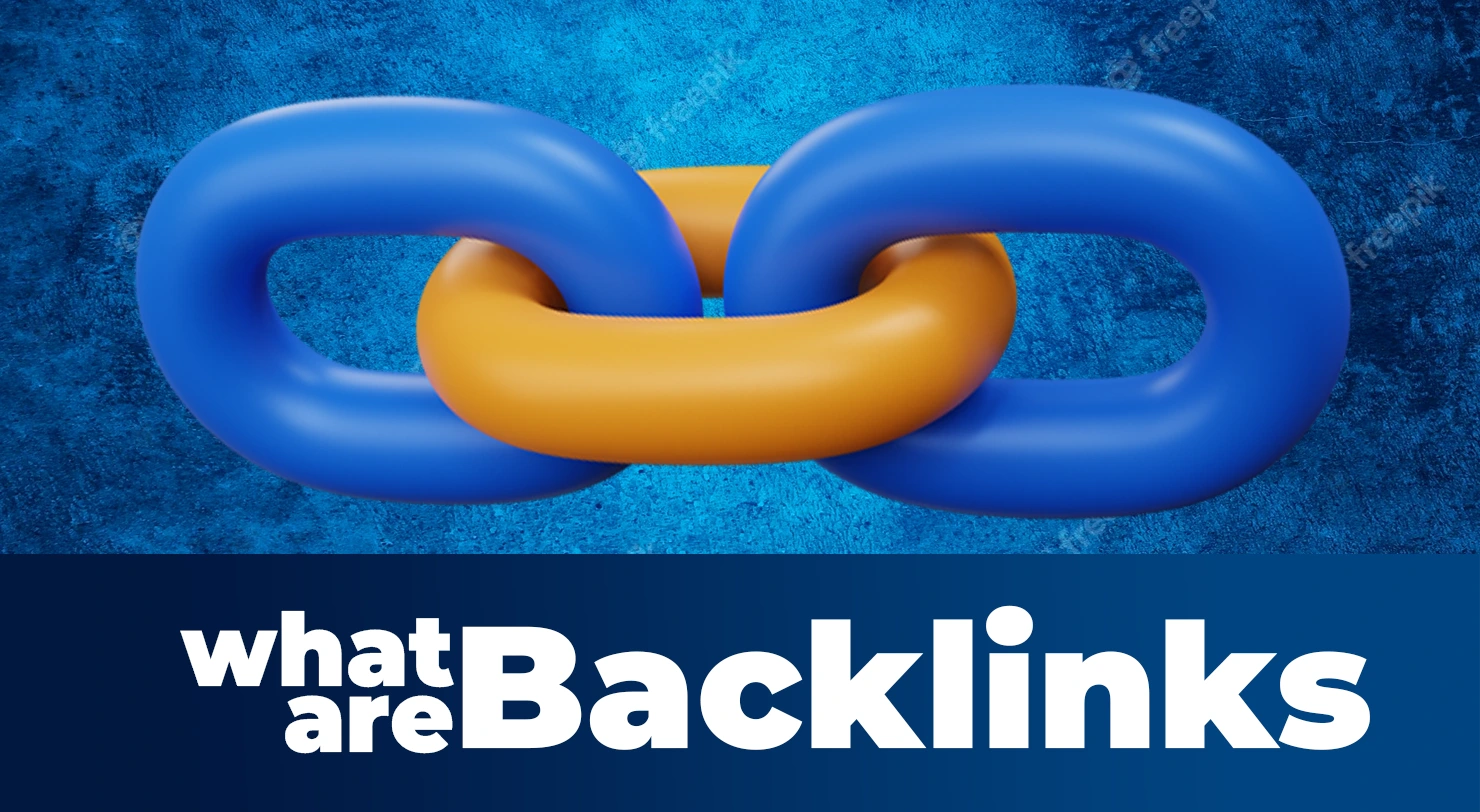Business
Job vs Business Which is best advantages and disadvantages

What is a Job, Anyway? A Comprehensive Guide to Job and the Different Types of Jobs.
Hello, readers! You’ve probably heard the word ‘job’ tossed around a lot, especially if you’re getting ready to jump into the workforce or thinking about switching careers. But what exactly is a job? And what types of jobs are out there? Let’s get into it.
So, What’s a Job?
In simple terms, a job is work you do to earn money. It’s usually a set of tasks or responsibilities you perform for an employer. You get paid for your time and effort, and often receive additional benefits like health insurance, retirement plans, and paid leave. A job can be full-time or part-time, and it can be permanent or temporary.
Different Types of Jobs
Now, let’s talk about the various types of jobs you might come across. There are countless options, but for simplicity, let’s categorize them into a few major types.
White-Collar Jobs
These are generally office-based roles that don’t require manual labor. Think jobs in sectors like IT, finance, healthcare, and education. Examples include software engineers, financial analysts, doctors, and teachers. White-collar jobs usually require a higher level of education and offer benefits like healthcare, retirement plans, and paid time off.
Blue-Collar Jobs
These jobs are usually more manual and labor-intensive. Think construction workers, factory employees, or mechanics. While many blue-collar jobs don’t require a college degree, they often need specialized training or apprenticeships. The pay can be competitive, especially for skilled trades.
Freelance or Gig Jobs
In this type of employment, you’re basically your own boss. Freelancers provide services to clients on a project basis. This could be anything from writing and graphic design to consulting and programming. The flexibility is a big plus, but you’re generally responsible for your own taxes and benefits.
Part-Time Jobs
These are jobs with fewer hours compared to a full-time role, usually under 35 hours a week. Part-time jobs can be white-collar, blue-collar, or freelance gigs. They’re often a good fit for students, parents with young children, or anyone looking to earn extra income on the side.
Remote Jobs
A relatively new but increasingly popular category, remote jobs let you work from, well, anywhere. Many industries are embracing remote work, especially tech companies. The perk is obvious—no commute! But it also requires self-discipline to stay focused when working from home.
Seasonal Jobs
These jobs are temporary and usually align with a particular season or holiday. Retail positions around Christmas or lifeguard jobs in the summer are classic examples. Seasonal jobs can offer good pay and even benefits for a short period.
Government Jobs
Working for the government can mean a lot of things—from being a city planner or police officer to working in a legal role. Government jobs are known for their stability, benefits packages, and pension plans.
Non-Profit Jobs
If you’re driven by a cause or a mission, working for a non-profit organization might be for you. Roles can vary widely, from fundraising and community outreach to research and policy development.
Also Read…Online Business Ideas in 2023

The Benefits and Advantages of Having a Job:
- We often hear about the grind of the 9-to-5, the commute, and the Monday blues. But let’s hit the pause button and shift the focus to something less talked about—the benefits of having a job. And no, we’re not just talking about the paycheck. There’s more to employment than meets the eye, so let’s unpack the good stuff.
Financial Stability: A Steady Paycheck
- Let’s start with the most obvious advantage—money. A consistent income is the cornerstone of financial stability. It enables you to budget, plan, and enjoy your life without constantly worrying about your next meal or bill. You can save, invest, and dream a bit bigger when you know a paycheck is coming at the end of the month.
Benefits Package: More than Just Health Insurance
- Many jobs offer a comprehensive benefits package that goes beyond healthcare. Think dental, vision, retirement plans, and sometimes even perks like tuition reimbursement or childcare services. These benefits can add significant value to your overall compensation and make life a bit easier.
Career Growth in Jobs
Having a job often means you have a clearer path for career progression. With hard work, dedication, and a dash of networking, you can climb the corporate ladder. Each rung brings more than just a fancier job title; expect higher pay, more responsibility, and more challenging and rewarding work.
Skill Development: Learn and Earn
When you’re working, you’re not just earning—you’re learning too. Job training, workshops, and everyday tasks help you build valuable skills. Whether it’s mastering Excel, learning how to manage a team, or getting savvy with digital marketing, these skills can be monumental in your personal and professional growth.
Social Interactions: More than Just Co-workers
Let’s face it, socializing is a basic human need, and having a job allows you to interact with a diverse group of people. Friendships, mentorships, and networking opportunities are all social perks that come with most jobs. You never know, your next best friend or business partner could be sitting in the cubicle next to you!
Work-Life Structure: Routine Isn’t Always a Bad Thing
A job provides a certain structure to your day, helping you manage your time more efficiently. Knowing your work hours can help you plan personal activities and create a work-life balance that suits your lifestyle.
Sense of Accomplishment: The Joy of a Job Well Done
There’s something inherently satisfying about completing a task or project. It gives you a sense of purpose and accomplishment. These achievements, big or small, can boost your self-esteem and make you feel valued and worthwhile.
Job Perks: The Icing on the Cake
Some jobs come with unique perks that can make your day-to-day more enjoyable. We’re talking about stuff like free lunches, gym memberships, or even the option to work remotely. These bonuses, while not essential, can improve your overall job satisfaction.
Financial Independence: Break Those Chains
Last but not least, having a job grants you financial independence. You don’t have to rely on parents, partners, or anyone else for your day-to-day expenses. Independence is empowering and enables you to make life decisions on your terms.
There you have it—the advantages of having a job aren’t limited to just financial gain. Employment offers a range of benefits that can contribute to your personal and professional growth. So the next time you’re dreading that Monday morning alarm, remember all the good stuff that comes from clocking in.
Also Read… 400+ Profitable Ecommerce Business Ideas in 2023
The Disadvantages of Having a Job
Time Constraints: Clock in, Clock out
The most glaring disadvantage is the lack of free time. With a typical 9-to-5 schedule, your weekdays are essentially monopolized by your job. For those who value personal time for hobbies, side gigs, or quality time with loved ones, this can be a significant downside.
Stress and Burnout: A Toll on Mental Health
Workplace stress is not something to be taken lightly. The pressure to meet deadlines, handle responsibilities, and climb the corporate ladder can be mentally draining. This stress can lead to burnout and adversely affect your overall well-being and performance.
Limited Income Potential: A Fixed Salary
When you’re working a salaried job, your earning potential is often capped. You can’t just decide to work more hours one week to earn extra money. Your income is fixed, which can be limiting for those who have financial goals that exceed their regular paychecks.
Job Security: A Thing of the Past?
In today’s competitive world, job security is not guaranteed. Economic downturns, company restructuring, and technological advancements can result in layoffs, regardless of how essential you think your role is.
Work-Life Imbalance: Always On the Clock
Many jobs, particularly those that are client or deadline-driven, demand more than the traditional 40 hours per week. This can severely impact work-life balance, making it difficult to plan personal activities and spend time with family and friends.
Commuting Woes: Time and Money
Let’s not forget the daily grind of commuting. Whether it’s public transport or a car ride, it consumes time and money. The wear and tear on your vehicle, gas expenses, and the potential for a longer workday due to travel can be taxing.
Golden Handcuffs: Financially Stuck
Better benefits and a comfortable salary can sometimes act as “golden handcuffs,” making you feel financially stuck in a job you don’t love. The fear of losing these perks can make it hard to pursue other interests or take the leap into a different career path.
Office Politics: Navigating the Minefield
Every workplace has its own dynamics and politics. Whether it’s the struggle to get noticed by management, conflicts with colleagues, or simply the extra effort required to fit into a company’s culture, office politics can be mentally exhausting.
Limited Skill Development: Jack of One Trade
Specialized jobs can put you in a position where you only excel in one area. This limited skill set can make it difficult to switch career paths later on or take on different roles within the same industry.
While jobs do offer a lot of advantages, it’s crucial to acknowledge these potential pitfalls. Being aware of the disadvantages allows you to make informed decisions about your career path. It also helps you put strategies in place to mitigate these downsides, whether that means negotiating for flexible hours, upskilling, or even considering freelance and remote work options.
Also Read… 300 + Best Unique Small Business Ideas In 2023
The Career Growth in Jobs: Pros and Risks You Should Know
It’s a thrilling ride, but like any adventure, there are both rewards and risks involved. If you’re curious about what lies ahead in your journey toward job growth, lets dive right in.
What is Job Growth, Anyway?
Before we dig into the nitty-gritty, let’s clear the air on what job growth actually means. It’s not just about climbing up the corporate ladder or earning that big promotion. Growth in a job also includes expanding your skill set, increasing your responsibilities, and becoming a key player in your field.
Benefits of Job Growth
Skill Development
Growing in your job means you’re constantly learning new skills. Whether it’s mastering a new software or understanding team management, this skill development can make you invaluable to your company and future employers.
Higher Earnings
Let’s not beat around the bush; a promotion usually comes with a pay bump. More responsibilities often mean more money, which is never a bad thing, right?
Expanded Network
As you move up, you’ll naturally meet more people, both inside and outside your company. These connections can be valuable resources for future opportunities and collaborations.
Increased Job Satisfaction
The feeling of accomplishing goals and moving forward in your career can be incredibly satisfying. This sense of achievement can make your job feel more fulfilling.
Risks in Job Growth
More Stress
Higher positions often come with greater responsibilities and longer hours, leading to increased stress. Burnout becomes a real concern if you’re not careful.
Higher Expectations
The higher you climb, the more is expected of you. The pressure to perform can sometimes be overwhelming, especially if you’re not fully prepared for the new role.
Work-Life Balance
Getting promoted might mean that your job consumes more of your personal time. Family commitments, friendships, and even self-care can take a hit.
The Spotlight Effect
Once you’re in a higher position, all eyes are on you. Mistakes that might have been overlooked earlier in your career can now have bigger repercussions.
Risk of Failure
Let’s face it, more responsibility also means a higher chance of failure. Whether it’s a project that doesn’t go as planned or a decision that backfires, the stakes are often higher.
Managing the Risks
- Know What You’re Getting Into: Before saying yes to that promotion or new project, understand what the role entails. Will you need to manage a team? Are there new skills you’ll need to learn?
- Set Boundaries: Remember, you have a life outside of work. Make sure to set boundaries to maintain a healthy work-life balance.
- Seek Mentorship: A mentor can provide invaluable insights into handling the complexities and challenges that come with career growth.
So, the career growth is an exciting but challenging journey. The key is to be aware of both the rewards and the risks involved. Don’t shy away from opportunities, but also don’t jump in blind. Stay informed, prepared, and proactive, and you’re more likely to navigate the maze of job growth successfully.
Additional Information for Job Seekers.
Looking for a Job? Keep These Tips in Mind
- Know What You Want: Do some soul-searching to figure out what kind of job fits you.
- Resume and Cover Letter: These are your golden tickets. Make sure they’re top-notch.
- Job Hunt: Websites, networking, and sometimes just walking into a place and asking if they’re hiring can work.
- Interview: If you get called for one, be yourself but be professional. And for Pete’s sake, dress appropriately!
What Business and How Does It Work
The term “business” thrown around a lot, but have you ever stopped to think about what it really means? It’s not just about men and women in suits, sealing deals in corporate meeting rooms. Businesses are everywhere—from the mega-corporations that dominate our lives to the mom-and-pop stores at the corner of our streets. So let’s take a closer look at what business is all about.
What is Business, Anyway?
In its most basic form, a business is any organization or venture set up to make a profit by selling goods or services. Whether it’s Apple selling iPhones or your local bakery selling mouth-watering pastries, it’s all business.
The Building Blocks of Business
Product or Service
At the core of any business is what it offers—either a product, a service, or sometimes both. Products can be physical goods like cars or laptops, while services are intangible things like consulting, healthcare, or house cleaning.
Market
For a business to succeed, there has to be a demand for its product or service. That’s where the market comes in. The market is basically everyone who could potentially buy what you’re selling.
Revenue and Profit
Revenue is the total amount of money made from sales, and profit is what remains after you deduct all the expenses. The aim of any business is generally to increase revenue and make a profit, although social enterprises may have other goals like environmental conservation or job creation.
Also Read… How to start DropShipping
Types of Businesses
Sole Proprietorship
This is the simplest form of business, run by a single person. Think freelancers or small shop owners. The upside is complete control and easy setup. The downside? You’re personally responsible for all business debts.
Partnership
As the name suggests, this involves two or more people running a business together. Each partner contributes to the business and shares the profits (or losses).
Corporation
This is the big one. Corporations are separate legal entities that are owned by shareholders. They can be small or massive multinational companies.
Small Businesses
These are independently owned ventures that have fewer employees and lower revenue compared to corporations. Your local coffee shop or hair salon probably falls under this category.
Business Sectors
- Retail: Businesses that sell directly to consumers. Think Walmart or Amazon.
- Manufacturing: Companies that produce goods. This includes everything from auto manufacturers like Ford to tech companies like Intel.
- Services: Businesses that offer services rather than goods, like airlines, consulting firms, or healthcare providers.
- Agriculture: This involves businesses that produce food, like farms and fisheries.
How Do Businesses Make Money?
Businesses make money by offering something of value that people are willing to pay for. The basic formula is to sell a product or service at a price higher than it costs to produce or provide it, thus making a profit.
Now u know what business is. Whether you’re thinking of starting your own venture, climbing the corporate ladder, or just curious, understanding the basics of business can give you a leg up in the professional world.
Also Read… How to Start an LLC
The Advantages of Running a Business
Hey, folks! Have you ever dreamt of being your own boss, calling the shots, and maybe even building an empire? Well, if you’re thinking about diving into the world of business, you’ve come to the right place. Running a business has its challenges, the advantages of having your own business. Let’s get to it!
Be the Boss
Ever had a boss you couldn’t stand? Well, when you’re running the show, that’s no longer an issue. Being your own boss means you make the decisions and set the course for your business. You get to create a work environment that suits you.
Financial Upside
Unlike a 9-to-5 job where your earnings are pretty much fixed, the sky’s the limit when you own a business. If your business does well, your financial gains can far outstrip what you’d earn as an employee. We’re talking potentially exponential growth here, people!
Flexibility Galore
Hate waking up to an alarm clock? Well, business owners often have the freedom to set their own schedules. Whether you’re a night owl or an early bird, you can work when you’re at your most productive.
Job Security,
When you own a business, you’re not at the mercy of layoffs or corporate downsizing. While there are other risks involved (more on that in a later article), you won’t wake up to find someone else has made the decision to end your career.
Tap Into Your Passion
If you’re passionate about something, turning it into a business can make work feel less like, well, work. Whether you love making crafts, helping people get fit, or cooking up a storm, your business can be something you actually enjoy doing.
Diverse Skill Set
Running a business means you’ll be wearing many hats. One day you’re the head of marketing, the next you’re tackling accounting. This not only keeps things interesting but also broadens your skill set, making you more versatile and knowledgeable.
Tax Benefits
Now, I’m no tax expert, but owning a business can open doors to various tax advantages. Things like business expenses, home office deductions, and even health insurance can often be written off, reducing your overall tax burden. Always consult a tax pro to maximize these benefits.
Leave a Legacy
A successful business is something that can be passed down to future generations. Even if you don’t have heirs interested in the family business, creating a lasting brand is a way to leave your mark on the world.
Networking Like a Pro
Being in business often involves mingling with other business owners, customers, suppliers, and professionals in your industry. These contacts can provide invaluable advice, partnerships, or even friendships.
Personal Growth
The journey of running a business is a rollercoaster of highs and lows. But even the lows provide learning experiences that contribute to your personal growth. You learn to be resilient, resourceful, and a problem solver.
If you’ve got the drive, the rewards of owning a business can be enormous—not just financially but also in terms of lifestyle, skill development, and personal satisfaction. But remember, with great power comes great responsibility.
Also Read… How to Develop your Business
The Disadvantages or downsides of Running a Business
We’ve talked about the upsides/advantages of being your own boss, endless earning potential. But let’s not kid ourselves, running a business isn’t all sunshine and rainbows. Let see the darker waters. The disadvantages of having your own business.
Financial Risk—The Elephant in the Room
You know the saying, “You gotta spend money to make money”? Well, it’s true. Starting a business often requires a significant investment, and there’s no guarantee you’ll see it back. You’re risking your own money, and maybe even borrowed funds, for a venture that might or might not work out.
Time is Money, and You’ll Spend Both
Forget the 9-to-5 routine; running a business often means long, erratic hours, especially in the beginning. Weekends, holidays, what are those? Your business could demand your attention 24/7.
The Buck Stops with You
Being your own boss is great, but it also means you’re the one responsible for making ALL the decisions—good or bad. Screw up a major deal? There’s no one else to blame. This level of responsibility can take a mental toll.
Jack of All Trades, Master of None
Running a small business usually means you have to handle various roles—manager, accountant, HR, and even janitor sometimes. And let’s be honest, most of us aren’t good at everything. Spreading yourself too thin can affect the business’s overall quality and your well-being.
Employee Drama
If your business grows to the point where you need to hire employees, prepare yourself for a new set of challenges. Managing people is hard, and dealing with conflicts, employment laws, and payroll adds another layer of complexity to your life.
No Guaranteed Income
Unlike a regular job that pays you a fixed salary, business income is unpredictable. You might earn a lot one month and practically nothing the next. The instability can make budgeting for personal and business needs a nerve-wracking experience.
You Can’t Escape the Tax Man
Running a business means dealing with complicated tax requirements. From sales tax to employee withholdings to income tax, it’s a whole different ball game. Mess it up, and you’re looking at fines or even legal trouble.
The Loneliness of the Long-Distance Entrepreneur
Operating a business can be a lonely endeavor. The responsibility and work hours can isolate you from family and friends. Plus, not everyone will understand the unique pressures and challenges you face, making it hard to find a support system.
Competition Never Sleeps
Regardless of your business type, you’ll face competition. Staying ahead—or simply keeping up—requires constant effort and adaptation. Fall behind, and you risk losing your market share or even going out of business.
Running a business is a big deal. It offers freedom, financial rewards, and the chance to make a real impact. But it also comes with significant risks and challenges that are not for the faint-hearted.
If you’re considering starting a business, it’s crucial to weigh the pros and cons carefully. Be prepared for the downsides and plan for them as best you can.
Also Read… How to start a business in the US
Difference between Jobs vs Business:
You’ve probably heard the debate more times than you can count: “Is it better to have a job or run a business?” Both paths have their pros and cons, and today, we’re putting them head-to-head to see how they stack up. We’ll cover advantages, disadvantages, growth prospects, risks, and finally, the verdict. So let’s jump right in!
Advantages in Job Vs Business
Jobs
- Steady Income: With a job, you get a regular paycheck. No stress about where the next buck is coming from.
- Benefits: Health insurance, retirement plans, and paid vacations are usually part and parcel of a job.
- Work-Life Balance: Generally speaking, jobs offer more predictable hours, helping you strike a balance between work and leisure.
Business
- Unlimited Earnings: In business, the sky’s the limit when it comes to earning potential.
- Be Your Own Boss: You call the shots and make the decisions.
- Flexibility: Your timetable is yours to set, making it easier to manage other commitments.
Also Read… How SEO can Help your Business
Disadvantages in Job Vs Business
Jobs
- Limited Earnings: You get what you’re offered; raises and promotions come when they come.
- Less Control: You’re not the one steering the ship, which can be frustrating.
- Job Security: Layoffs can happen, leaving you suddenly without a paycheck.
Business
- Financial Risk: You invest your own money, and there’s no assurance of returns.
- Time-Intensive: A business often demands long hours, especially in the beginning.
- Decision Fatigue: The weight of every decision falls on your shoulders, which can get exhausting.
Growth Aspect in Job Vs Business
Jobs
Career growth in a job is usually a linear path—you work, get promotions, and climb the ladder.
Business
With a business, growth can be exponential. You can expand, diversify, and even go global.
Risks in Job Vs Business
Jobs
The biggest risk in a job is losing it, which could happen for a variety of reasons, including layoffs or company downsizing.
Business
The risks are more numerous and can include financial loss, market downturns, and competition, to name a few.
Also Read… Profitable Ecommerce Business Ideas
The Verdict
Choosing between a job and a business ultimately depends on your personality, needs, and risk tolerance.
Team Job if:
- You value stability and a work-life balance.
- You prefer a structured environment.
- You’re risk-averse.
Team Business if:
- You’re okay with financial risk in exchange for higher earning potential.
- You value autonomy and decision-making power.
- You’re willing to put in long hours to make your vision a reality.
Jobs vs Business—Which Path to Choose?
Alright, folks, we’ve dissected the world of jobs and business, examining their differences, benefits, growth prospects, and risks. Now, it’s time for the grand finale—the final verdict.
Keep Trying Until You Succeed
Whether you choose a job or business, the key to success is perseverance. You might face setbacks, challenges, and failures, but the important thing is to keep trying until you succeed. Remember, every setback is a setup for a comeback. And don’t just work hard, work cleverly. Be strategic, make informed decisions, and always be on the lookout for ways to improve.
The Verdict
Choosing between a job and a business is a deeply personal decision and depends on your individual goals, personality, and risk tolerance. Both paths have their merits.
Opt for a job if you value stability, a structured environment, and a steady paycheck. Go the business route if you’re willing to take on financial risk in exchange for potentially higher rewards and value autonomy and flexibility.
Ultimately, there is no one-size-fits-all answer. What works for one person may not work for another. The important thing is to choose a path that aligns with your personal and professional goals.
Share Your Thoughts
We’ve done our best to lay out the pros and cons of both worlds, but we’d love to hear from you. Did this article help you make a decision? Do you have any insights or experiences to share? Let us know in the comments below. Your feedback is invaluable to us and helps us create content that is helpful and relevant to you. So don’t be shy—drop a comment and let us know what you think.
Frequently asked FAQ Questions
Which is better job vs business?
Choosing between a job and a business boils down to your personal preferences, risk tolerance, and career goals. Jobs generally offer stable income, health benefits, and a set work schedule, making them suitable for those who value financial stability and a balanced lifestyle. Businesses, on the other hand, provide the opportunity for unlimited earnings and give you the freedom to make your own decisions. However, they come with a higher level of financial risk and demand a significant time investment. Ultimately, neither option is universally better; the key is to align your choice with your individual aspirations and willingness to assume risk. Success in both paths relies on perseverance and strategic thinking.
What is the main difference between a job and a business?
A job typically involves working for an employer and receiving a fixed salary. In a business, you are your own boss and income can vary depending on the business’s performance.
What are the advantages of having a job?
Jobs often come with a stable income, benefits like health insurance and retirement plans, and a predictable work schedule.
What are the advantages of running a business?
Businesses offer the potential for unlimited earnings, greater flexibility, and the freedom to make your own decisions.
What are the disadvantages of a job?
Jobs usually have a ceiling on earning potential, less control over decision-making, and the risk of job loss through layoffs or downsizing.
What are the disadvantages of running a business?
Businesses come with financial risks, require long working hours, and place all decision-making burdens on the owner.
Which offers better growth prospects?
Jobs offer a more linear path of career growth through promotions, while businesses have the potential for exponential growth, including expansion and diversification.
What are the risks involved in both?
Jobs come with the risk of being laid off or downsized. Businesses are riskier and involve financial investment, market instability, and competition.
Which one is better?
Neither is universally better; the choice between a job and a business depends on your personal preferences, risk tolerance, and career goals. If you value stability and a structured environment, a job might be better for you. If you are willing to take financial risks and value autonomy, then running a business could be more suitable.
Any advice for those trying to choose?
The key to success in either path is perseverance and strategic thinking. Whether you choose a job or business, be prepared for ups and downs and keep striving until you achieve your goals.
Can I have a job and a business?
Yes, it’s possible to have both a job and run a business, often referred to as “side hustling.” Many people maintain a full-time job for financial stability and benefits while operating a part-time business to explore entrepreneurial opportunities or pursue a passion. However, balancing both requires effective time management and could have tax implications. It’s also essential to check your employment contract for any clauses that may limit or prohibit outside business activities. If you can manage the demands of both, having a job and a business can provide a blend of financial security and the opportunity for unlimited earnings.
Who Earns More, Job or Business?
Earning potential in both jobs and businesses varies widely and depends on multiple factors like industry, experience, and risk tolerance. Jobs offer fixed salaries with some high-paying fields like medicine and law offering substantial incomes. Businesses provide uncapped earning potential but come with higher financial risks. While a successful business has the potential for significantly higher earnings, it also carries more uncertainties compared to a steady job.
Which is Best for the Future, Job or Business?
The “best” choice between a job and a business for your future depends on your personal goals, risk tolerance, and skills. Jobs offer stability and a structured career path, while businesses offer flexibility and the potential for exponential growth. Neither is universally better; it’s about aligning with your long-term objectives and willingness to take risks.
Can a salaried person do business?
Yes, a salaried person can also run a business, often known as “side hustling.” However, it’s crucial to check your employment contract for any clauses that may restrict or prohibit outside business activities. Balancing both requires good time management and may have tax implications.
How do you balance business and job?
Balancing a business and a job requires effective time management, setting clear priorities, and possibly delegating tasks. Using digital tools to automate business processes can also help. Ensure you check your employment contract for restrictions and consult tax professionals for advice on managing dual incomes.






